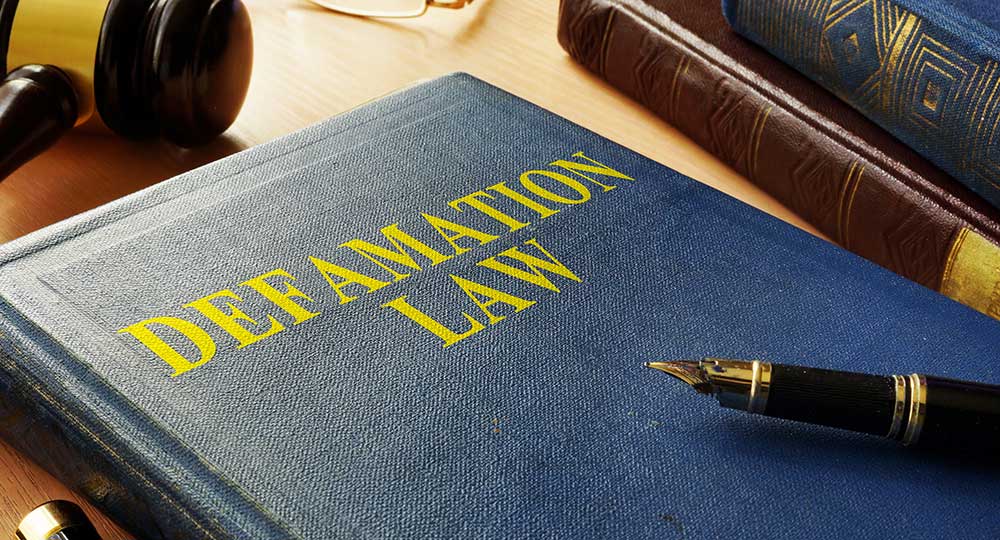The law in Malaysia protects many areas of a person’s life. One such important area is their personal reputation. Everyone has a right to have their reputation protected; if a statement is made about them that badly impacts how others see them—known in law as defamation—then a claim may be made against the statement maker. If the defendant does not have a valid defence against such defamation, then the claim will succeed.
The law of civil defamation in Malaysia is set out in the 1957 Defamation Act, whereas criminal defamation is governed by section 499 of the Penal Code. This article explains the law of civil defamation in Malaysia, which is supplemented by Malaysian case law and English common law.
Defamation – a definition
The Defamation Act of 1957 does not define defamation, but the Malaysian case law and English common law which developed over the years now represent a definition. A statement will be defamatory if:
- A person’s reputation in the eyes of right-thinking members of society would be lowered by the statement;
- The statement exposes an individual to hatred, ridicule or contempt; or
- An individual’s business, trade, profession or calling is belittled by the statement.
Defamation comes in two forms, depending on how the statement appears:
- Libel: written statements appearing in media such as newspapers, social media, emails or videos. (Also sometimes called ‘defamation in permanent form’).
- Slander: spoken statements or gestures, (also known as ‘defamation in temporary form’).
What constitutes a defamatory statement?
There is no exhaustive list of defamatory statements. Instead, the court will look at the context and meaning of the statement to decide if it is defamatory.
Sometimes this is straightforward, and a statement’s natural and ordinary meaning is defamatory. But often, it is not as clear-cut and the court must look at any innuendo attached to the statement.
- Natural and ordinary meaning: e. the literal meaning of the words used, whether implied or indirect, or any meaning based on general knowledge.
- Innuendo:e. where seemingly ordinary words are used but they have special meaning for people with specific knowledge of the situation described. For example, if someone says that person A is a regular customer of the Hemp and Seed Restaurant, then the ordinary meaning of that statement is not defamatory. But if you have specific knowledge that the restaurant described is often used for drug dealing, then the statement could be defamatory against person A, because the innuendo infers that person A is, or may be, a drug dealer.
What must a claimant prove to succeed with a defamation claim?
To successfully claim defamation has occurred, the claimant must prove:
- That the statement was published (either written or spoken) to another person
- That the statement refers to the identity of the claimant
- That the statement is defamatory, whether in its ordinary meaning or by use of innuendo.
When is a statement published?
A statement must be communicated to a third party, and reach that person, in order to be classed as published. Merely issuing a statement to someone in private is not defamation, because nobody else heard or saw the statement.
When does a statement refer to the identity of the claimant?
Clearly, if the statement uses the claimant’s name, then it has referred to them. But even if it doesn’t use their name, but instead makes them easily identifiable, then it can still be classed as referring to them. For instance, ‘the headteacher of ABC school discriminates against children from certain backgrounds’ makes it easy to identify the person because there is normally only one headteacher of the school. The reasonable person reading that statement will know exactly who it refers to.
When can damages be claimed?
Actual damage or financial loss must usually be proved before a claimant can be successful in a claim for civil damages. However, this is not always required under the Malaysia law of defamation.
Certain kinds of slander (i.e. statements made verbally) can be actioned without needing evidence of special damages, according to the Malaysian Defamation Act. Such scenarios of this type include:
- Slander which suggests a criminal offence has occurred which may attract a sentence of corporal punishment or imprisonment.
- Slander of women (which infers unchastity or adultery)
- Slander of goods or title
- Slander which relates to official, professional or business reputations.
For those who succeed with their defamation claim, they may be entitled to financial compensation, of an amount to be determined by the court. They will consider the nature of your reputation, how serious the effect of the statement was, the losses you actually suffered, whether the statement was made maliciously, and possibly other criteria too.
Defences to defamation
In some cases, defences against defamation may succeed. The most common defamation defences that occur are:
- Privilege
- Fair comment
- Justification
Privilege
There are two kinds of privilege; absolute, and qualified.
Absolute privilege can be relied on as a defence if the statement was made in one of the following ways:
- In parliament – for example, one member of parliament calls another member of parliament dishonest during the course of a parliamentary session
- In judicial proceedings
- In police statements or reports made to the police under the Criminal Procedure Act, section 112.
Qualified privilege is where the maker of the statement has a legal or moral duty to make the statement, or if they make the statement to further a legitimate common interest.
An example of qualified privilege operating as a defence would be if Accountant X wrote to the Accountancy Disciplinary Board claiming that Accountant Y does ‘creative accounting’ to avoid taxes. Accountant Y then sues Accountant X for defamation.
In the above example, Accountant X will be able to use the defence of qualified privilege if they can prove that they had a duty to report such allegations regarding Accountant Y to the authorities so they can investigate. The Board is legally bound to receive and investigate the allegation.
Fair Comment
To rely on the defence of fair comment, you must establish that the statement you made was an honest statement of your opinion relating to something in the public interest. You must establish that:
- You were making a comment/expressing your opinion, not making a statement of fact
- Your comment was based on facts
- Your comment was fair
- Your comment related to a matter that was in the public interest.
In other words, you should ask, ‘would a fair-minded person have held the opinion that I hold, based on the proven facts, and is it in the public interest to express that opinion?’
This can be illustrated using the following example:
A journalist published a report in a newspaper about a particular company. It contained statements relating to the behaviour of a shareholder of the company (a local businessman) whose behaviour caused the chairman to walk out of a meeting. The report says the chairman was upset and other people at the meeting felt uncomfortable, and the shareholder refused to address the issues later. The report says the shareholder was aggressive, unprofessional and rude. The shareholder then sues the journalist.
If the journalist can prove that the report was fair comment, then he can use the defence of fair comment. He based his opinion on the facts that the shareholder swore, banged the tabled and threatened people at the meeting. Since the shareholder is also a prominent businessman, it was in the public interest to report this.
Justification
If the statement in question was true, then the person who made was justified in stating it.
However, merely having the sincere belief that the statement is true is NOT a defence if it turns out to be untrue. Repeating a false rumour is also no justification, even if it is one that seems very believable.
For instance, you say to someone that Peter is having an affair whilst married. You believe this in all sincerity, since all the people in your reading group said it was true. However, in reality, Peter is not having an affair, but is simply making trips to visit a sick relative.
Peter’s reputation is harmed by you saying this; he is identified in the statement, and you ‘published’ it by saying it to someone. Your conduct was defamatory.
Do you have a defence because you believed he was having affair, and does that justify you saying it?
No, because it was a false statement. If you can’t prove he is having an affair, you can’t rely on the defence of justification.
Malice
Any defendant who has maliciously published statements cannot rely on fair comment or qualified privilege.
So in the example above, if Accountant X reported his colleague for wrongful conduct even though he knew it was untrue, simply because he didn’t like him, then he cannot rely on the defence of qualified privilege.
Likewise, if the parents who claimed the headteacher was discriminating against certain pupils didn’t believe it was an accurate statement, or didn’t try and verify it, (or worse, they made it because the headteacher gave their child bad marks), then they can’t rely on fair comment.
In summary, where malice is involved, this may mean that the accused cannot rely on the usual defences.
Has someone made a defamatory statement against you?
You should speak to a lawyer immediately if you think someone has defamed you by publishing harmful statements about you. A lawyer with a specialism in this area of law will help you protect your rights and obtain the compensation you deserve.
Likewise, if you have been accused of defamation, an experienced lawyer will be able to explain the various defences that may be available to you. Seek legal advice as soon as you are able and discuss your circumstances.



